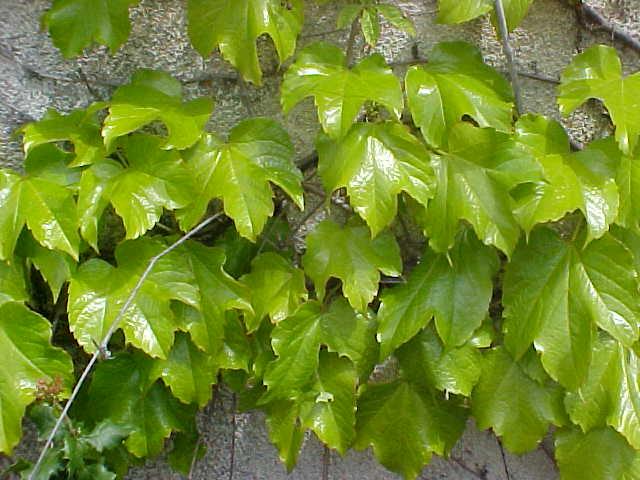
(par-then-oh-SIS-us try-kus-pi-DAY-tuh)
Boston Ivy
It is a deciduous, broadleaf, vine. Rapid growth. Gets 50-75ft. tall and 50-75ft. wide. Likes sun to half shade. Hardy to 0 degrees.
Found in the forests in the Himalayas, E. Asia, and North America. Some species are twining, but more commonly they cling by disk-like suckers on the tips of tendrils. They are grown for their lobed or fully divided, palmate leaves, usually brightly colored in autumn. Clusters of inconspicuous flowers, with 5, sometimes 4, short, thick green petals, are produced in summer, and may be followed by dark blue or black berries. Grow through a large tree or use to cover a wall, fence, or stump. No support is required because the disk like suckers attach themselves to walls. The foliage of wall-grown plants often harbors a variety of wildlife. The berries may cause mild stomach upset if ingested.